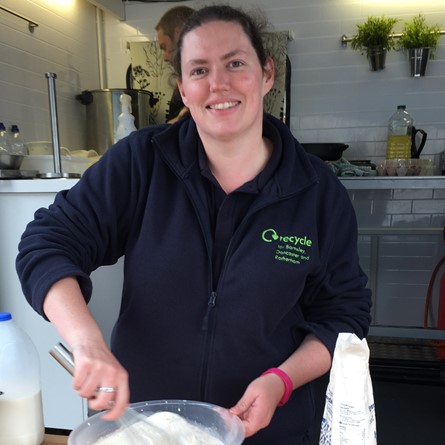There are lots of different ways to compost from using compost bins to building a wormery and the earlier you start in the year the sooner you will create a top-quality fertiliser for plants and vegetables for free!
Last year, Waste Less South Yorkshire, a leading environmental group which is supported by local councils and the Renewi organisation, gave away 14 Hotbin composters to lucky competition winners. Hotbins can transform garden and food waste into fertiliser - in as little as 30-90 days.
One of the winners - Ben Russell from Wheatley, Doncaster said: “We are keen recyclers and have been composting for a while now. It is a brilliant way of teaching our children about the environment and waste.
“The Hot compost bin has made it more fun, and we're looking forward to doing more vegetable growing now we are getting our compost quicker.”
Abi Reid is Community Education Liaison Officer based at Manvers, the award-winning waste treatment facility which diverts 97 per cent of Barnsley, Doncaster, and Rotherham household waste from landfill.
“Whether you have a huge garden or no garden at all there is a method of composting you can use,” said Abi.
“Because of concerns about climate change we know many people are trying to reduce their carbon footprint. Not only is home composting a great way to recycle garden waste but it can save people money on fertilisers too.
“At Waste Less South Yorkshire we are keen to support people to get the most out of their gardens and our website contains lots of information and helpful tips about how to get started if you want to try home composting.”
For more information visit the Waste Less South Yorkshire website at wasteless-sy.co.uk and campaign posts can also be found by searching #SouthYorkshireComposts on social media.
Popular composting methods include:
Plastic compost bins
This bin is ideal for beginners. They are available at many DIY stores and some Councils even offer a discount when buying them. These types of bins are used for composting garden waste as well as some food waste such as vegetable peelings and apple cores.
HotBin
Although the initial costs of these bins are higher than other systems, waste decomposes at higher temperatures and a higher speed (30-90 days in comparison with 6 months plus for other composting methods.) They are about the size of a wheelie bin and the process is all self-contained.
Wormeries
These types of bins are great for small scale composting of kitchen waste. Worms break down food quickly to produce a nutrient-rich liquid that when diluted with water (10 parts water to 1 part liquid) can be used as a fertiliser.
Wooden compost bins
This method of composting requires a large amount of space but can compost large quantities of material. The bin itself is relatively inexpensive and can be built using old wooden pallets or scrap timber.






